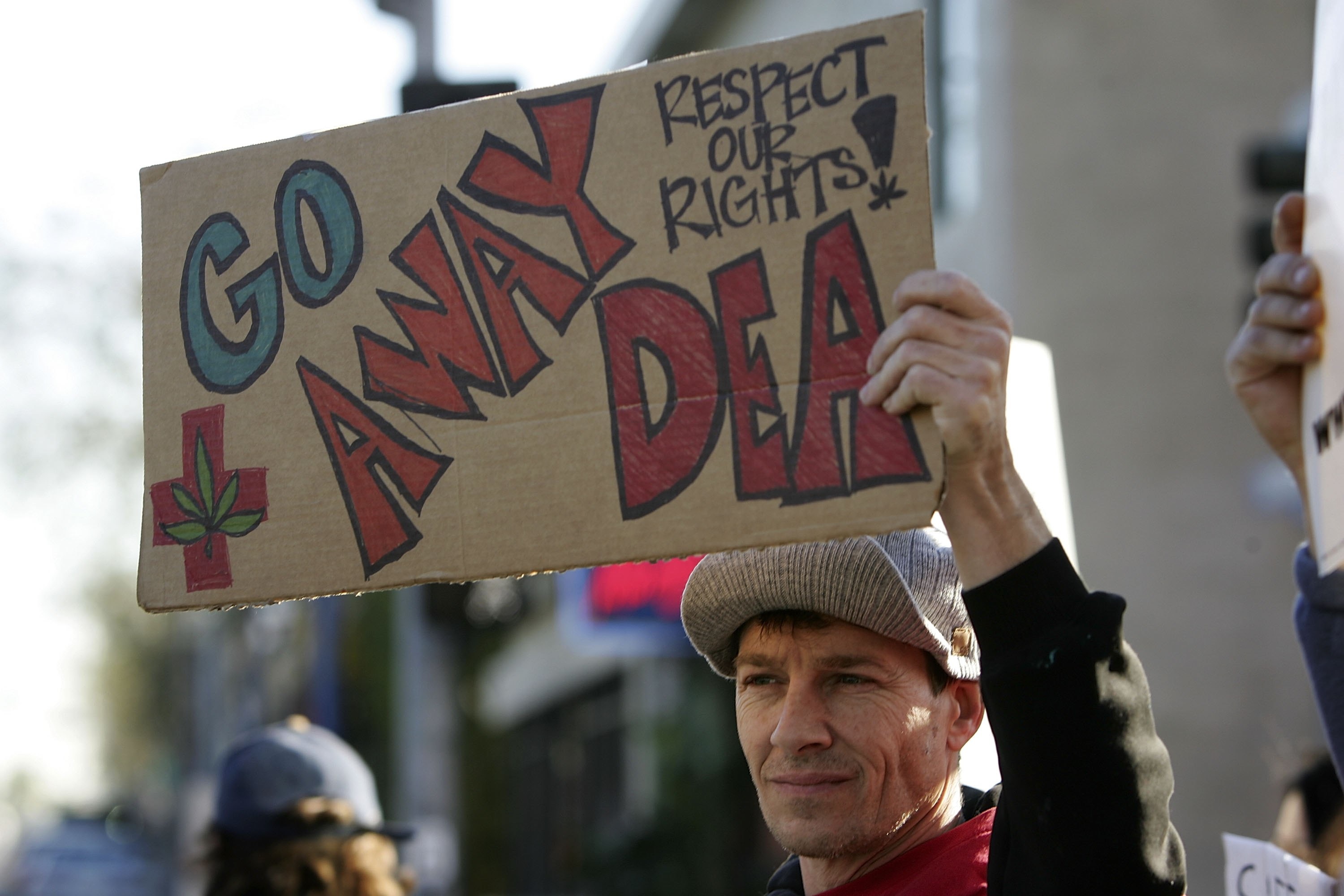Marijuana Is Not Alcohol — Why Do Anti-Marijuana Advocates Pretend It Is?

Any likeness between marijuana and alcohol ends with the recreational nature in which both are treated. They are enjoyed together on occasion, and both have the potential to put you in a mellow mood—though for many, alcohol has the opposite effect. Marijuana rarely does.
Most importantly, comparing the two is a safe way to distract from any number of plausible debating points, some of which were brought up in the segment. First on this list is another substance that marijuana is closer to: opioids. This is arguably the most consequential aspect of legalization.
Opioid use fell in states that have given the thumbs up to marijuana, a recent study found. For people suffering from severe or chronic pain, marijuana offers a credible alternative for relief. In fact, research shows that opioid overdoses fell in states with medical or legalized marijuana.
While I know that the plural of anecdote is not data, as the saying goes, I’ve been prescribed painkillers three times in the last two years: once for meniscal surgery, once for cancer surgery, and another following chemotherapy. Twice I scrapped the opioids for marijuana. On both occasions I experienced no upset stomach and sleep disruption, as I had with just one day on opioids. After throwing the bottle away and taking a few this, my appetite quickly returned and my rest was more efficient.
By the third time, I never bothered filling the prescription. I just went to my medical marijuana shop.
Another argument regards the access of edibles for teenagers. The plot line is a Reefer Madness outtake: the young child won’t be able to differentiate between a pot brownie and one filled with sugar—because, of course, the sugary version poses no problem. Edible companies are going to specifically target children to get them hooked at an early age.
This issue leads to a larger problem in a capitalistic society. Companies want lifelong consumers, something the tobacco industry did specifically target. Considering most marijuana advertising has always been childish—tie-dye, colorful, cartoonish—it’s easy to suspect the trend will continue. To isolate marijuana from, say, the vaping industry or, more insidiously, corporations like Nestle, which hooks humans from birth to death, is unfair.
Every industry targets children, or at the very least turns a blind eye if they join in. Want to regulate companies in this manner? Start with smart phone apps. Or take Nestle and sugary brownies. Here we don’t have to speculate; the diabetes epidemic proves the point.
Anti-marijuana coalitions pretend that pot is the only monster under the bed. Sure, some children might find an edible ending up in their stomach. It’s happened before. No amount of legislation is going to change that.
If state governments are careful with legislation, speculative cases like the above will be minimized. Given stringent laws and high taxes in Colorado, it’s pretty certain no state is going to let this slide in without restrictions, just as it’s certain that the tax revenue will be welcomed, which is what makes anti-marijuana politicians such a joke: you welcome corporations with open arms all the time. Claiming concern about the ‘business interests’ of marijuana companies has nothing to do with this. It’s shameful that you pretend it to be so.
California’s Lieutenant Governor Gavin Newsom has a knack for simplifying such issues. While he’s not toking up anytime soon, he nails it during the NPR piece:
I don’t think you have to be pro-marijuana to be anti-prohibition. People like me, and I think millions of others out there, believe that the war on drugs has been an abject failure. It’s been disproportionately waged against people of color and poor folks.
Who’s really against marijuana legalization? For the most part, three organizations:
1. The pharmaceutical industry, which stands to lose revenue as more people recognize the medical benefits of marijuana.
2. The prison industry, which counts on low-level criminals populating their cells to keep funding coming in.
3. The religion industry, which sticks to a century-old fear regarding a substance that was legislated out of use thanks to big business interests—the very devil anti-marijuana proponents are championing to not let it back in.
Marijuana is not alcohol. Millions of people will not die from liver damage, obesity-related problems, depression, aggravated assault, or drunk driving, all circumstances which alcohol plays a role in. Nor will they die of lung cancer in the amounts that tobacco users do. Want to take something seriously? Legislate and police texting and driving better: that’s a proven killer. Leave the potheads alone—they’re the least of society’s concern.
—
Derek Beres is working on his new book, Whole Motion: Training Your Brain and Body For Optimal Health (Carrel/Skyhorse, Spring 2017). He is based in Los Angeles. Stay in touch on Facebook and Twitter.





